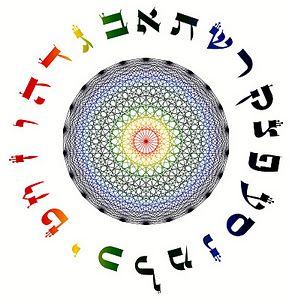ARIEL BEN AVRAHAM – ECCLESIASTES: THE ILLUSION OF VANITY AND THE REALITY OF LOVE (XXVIII)
“This is an evil in all that is done under the sun, that there is one event unto all; yea also, the heart of the sons of men is full of evil, and madness is in their heart while they live, and after that they go to the dead. For to him that is joined to all the living there is hope; for a living dog is better than a dead lion.”
(Ecclesiastes 9:3-4)
We all face evil in this world under the sun, for it happens to all. As part of human consciousness to exercise free will, evil dwells with us as the necessary reference to choose goodness.
If we make evil our choice, it fills our hearts and minds to make us fall into ego’s fantasies and illusions as the expressions of madness for what we live and for what we eventually die.
This again brings us to the awareness that a meaningful life is associated to goodness, while the vanity and futility of evil turn us into the living dead.
It’s better to live in goodness, even if is little, than living dead in abundance as it happened with the generation of the Flood and the people of Sodom and Gomorrah, who in their extreme abundance they lived in depravity and perversion.
“For the living know that they shall die; but the dead know not anything, neither have they any more a reward; for the memory of them is forgotten. As well their love, as their hatred and their envy, is long ago perished; neither have they any more a portion forever in anything that is done under the sun.”
(9:5-6)
We are subtly taught here that goodness accumulates, adds and multiply, for it is always remembered and praised for the benefit of the human condition.
Those who live in, with, by and for goodness know that it is their only true possession because it is part of who they are. In this awareness they complete their life and its purpose when they die.
The goodness that they have done makes them always living, for their memory is blessed and honored even after their passing; while the memory of the wicked is erased, for their negative deeds are only reminders of what must be removed from life.
“Go your way, eat your bread with joy, and drink your wine with a merry heart; for God has already accepted your [good] works. Let your garments be always white and let your head lack no oil.” (9:7-8)
These verses evoke the Jewish final redemption and Messianic times that we are destine to live, rather sooner than later, for goodness is the purpose of God’s creation that includes life in this world.
Goodness is the purpose and motivation to go into the world and enjoy the things that can make us happy, and to exult in a joyous heart knowing that we reap the produce and benefits of the goodness for which we live.
This is the realization that goodness is the bond with our Creator that keeps us pure, complete and wholesome. In this awareness we are permanently enlightened with the oil of our knowledge of Him.
Kochav Yaakov, Shomron (Samaria), Israel Ariel Ben Avraham (f. Zapata) was born in Cartagena, Colombia in 1958. After studying Cultural Anthropology in Bogotá moved to Chicago in 1984 where he worked as a television writer, reporter and producer for 20 years. In the 1990’s he produced video documentaries related to art, music, history and culture such as “Latin American Trails: Guatemala” distributed by Facets.org. Most of his life he studied ancient spiritual traditions and mysticism of major religions, understanding the mystic experience as the individual means to connect with the Creator of all. Since 2004 he studies and writes about Jewish mysticism and spirituality mainly derived from the Chassidic tradition, and the practical philosophy of the teachings of Jewish mystic sages. The book “God’s Love” is the compilation of many years studying and learning Jewish mysticism. The messages of his book are part of the content, exercises and processes of a series of seminars, lectures and retreats that he facilitates in Israel.










